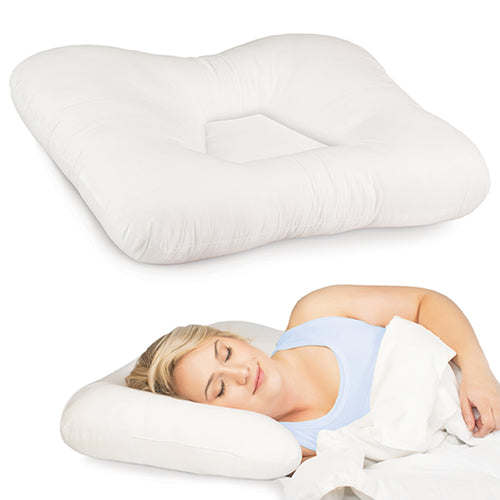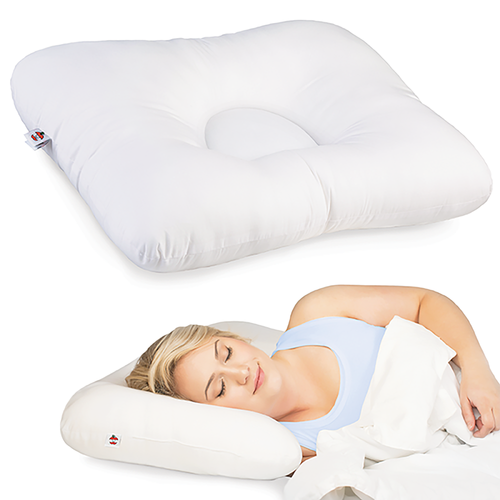

Try These Sleeping Tips to Relieve Your Neck Pain
By Brian Acton
There are many causes of neck pain, ranging from health conditions to sports injuries to bad posture. But the time you spend asleep could also be contributing to your stiff or sore neck. It all comes down to the way you position yourself in bed.
Try these sleeping tips to help relieve your neck pain.
- Limit Phone Usage and Screen Time - Do you spend a lot of time looking down at your phone - whether standing, sitting, or lying in bed? Consider ditching the phone a few hours before bedtime. Craning your neck toward your phone, even when lying down, puts a lot of additional pressure and strain on your neck. This can lead to neck pain, back pain, and even slipped or herniated discs. Even watching TV while prone in bed can cause issues. If you must use your phone, hold it at eye level so you aren’t leaning forward to see your screen.
- Stretch Daily - Performing neck stretches in the evening and/or in the morning can help loosen tight muscles and relieve pain. Make it a daily routine to stretch, either in the morning when you wake up or in the evening before you get in bed. Check out spine-health.com for a full list of neck stretches and strengthening exercises that can build muscle, reduce stiffness, and relieve pain.
- Sleep in the Right Position - If your neck isn’t positioned properly when you sleep, it can lead to stiff or sore muscles. Sleeping the wrong way every night can cause chronic pain. Make sure you aren’t sleeping in a way that is sabotaging your neck or spinal health. Generally, back and side sleeping is better for your neck. Sleeping on your stomach can cause you to arch your back and turn your head to the side for hours on end, which is bad for your spine and can cause neck pain. You should also ensure your head and neck are supported at the right level. Resting your head too low or too high can contribute to neck pain. Which brings us to our last point…
- Use the Right Pillow - The right pillow will align your cervical spine to help reduce muscle tension while you sleep. A pillow that is too thick or too thin may keep your head and neck outside of its optimal alignment. This can contribute to muscle stiffness and neck pain. If your neck frequently feels stiff and tense in the morning, you may want to try a different pillow. Core Products cervical pillows offer solutions for all body sizes, and some even have options for both side sleeping and back sleeping if you like to shift around at night.
Sources:
https://www.health.harvard.edu/pain/say-good-night-to-neck-pain
https://www.spine-health.com/conditions/neck-pain/neck-stretches
Mentioned Products

Tri-Core Cervical Support Pillow

D-Core Cervical Support Pillow



